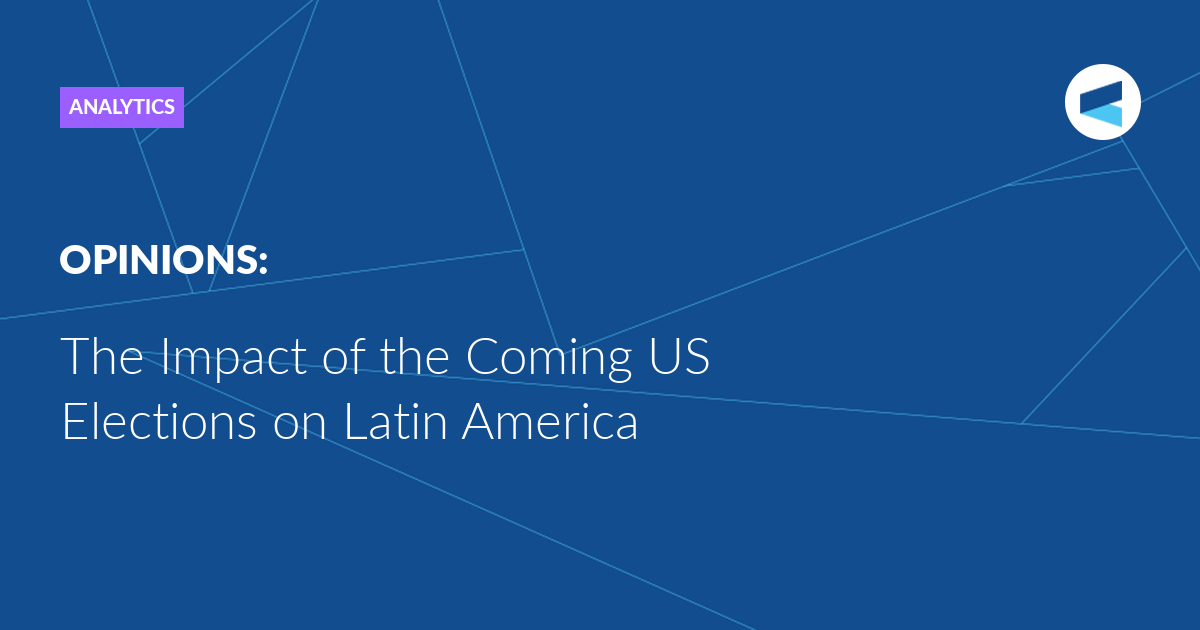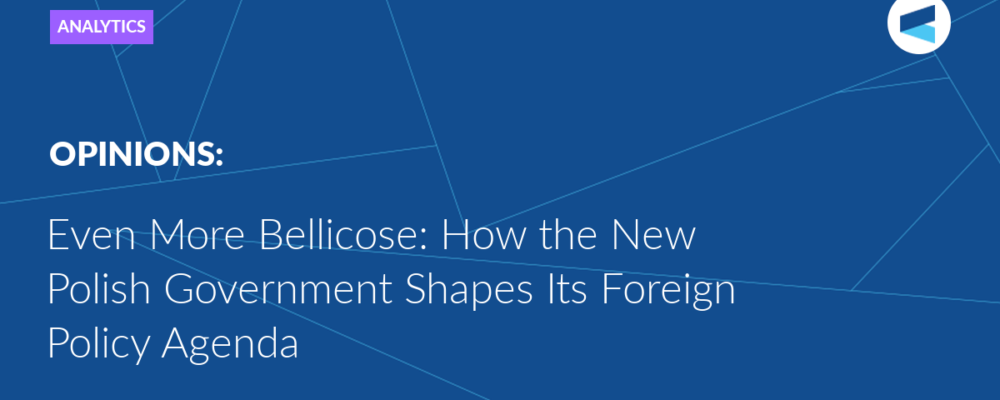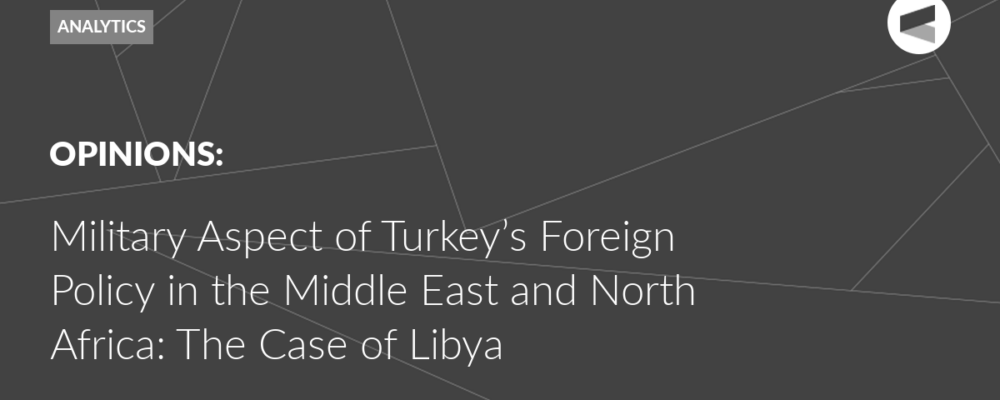The United States seems to be embarked on a heated rematch between two leaders who, despite their different personalities, respective supporter bases and ideological standpoints, have very little to offer in the way of a new relationship between the United States and its southern neighbours. Rather, both a Democrat or a Republican Administration will likely just be concerned with maintaining most of the region in line with its foreign policy objectives, aligned with the US in face of non-continental actors, and distant from alternative forms of regional organisation that exclude the US.
The last two US Administrations have made ample mention of the region, driven by issues such as migration and trade, and have employed apparently conflicting discourses, but in the end, policy outcomes have been quite similar. The US information and military presence is likely to increase, but any true agenda of development and autonomy in the region can only be pursued through the efforts of the Latin American and Caribbean nations themselves, not via a partnership with Washington.
Today’s world has added another level of complexity to the US – Latin America relationship. The five monopolies that Egyptian scholar Samir Amin identified as the source of strength of the US-led world order: weapons of mass destruction, mass communication, monetary and financial systems, technology, and access to natural resources, are beginning to break down. New trading arrangements as well as the de-dollarisation efforts coming from BRICS+ call into question the financial control; advances by Russia and China have curbed US technological superiority; and even Washington’s control over certain natural resources is diminishing. This means that the United States will now have to rely even more heavily on its military strength and its information apparatus to exert control over what it believes is its natural sphere of influence.
The (Possible) Return of Trump
From the beginning, Donald Trump’s capacity to rally his Republican base has been clear, and his opponents have had to deal with the awkward task of criticising Trump but just not enough that it would alienate his supporters. We often look at Trump’s policy towards Latin American through the lens of his immigration policy, ranging from his fabled “border wall” to his hostile rhetoric towards the immigrant population, who he claims are “poisoning the blood” of the United States. It will be Latin American migrants who will bear the worst of a renewed “zero-tolerance” policy, with new deportations, detentions, and family separations. Trump’s Remain in Mexico policy, for example, did not address the root causes of migration, including US political incentives to travel to the US, but rather placed upon Mexico the burden of taking care thousands of migrants until their cases were finally processed.
As a matter of fact, Trump’s policies exacerbated the conditions that have pressured many to migrate to the United States. During his past Administration, Trump targeted Cuba and Venezuela with unilateral sanctions. Under Trump, not only were travel and financial restrictions imposed on Cuba; it was also classified as a ‘state sponsor of terrorism’. Meanwhile, in Venezuela he audaciously recognised a self-proclaimed president in order to seize Venezuelan assets and accounts. These measures placed an enormous strain on both economies: The blockade against Cuba has seen its harshest period since the fall of the Soviet Union, while Venezuela’s income loss has amounted to $700 billion. Having broken diplomatic and consular relations in 2019, the deportation of undocumented Venezuelan migrants from the United States was no longer possible, aggravating the migration crisis Trump had set out to address.
The overthrow of the constitutional Venezuelan government of Nicolas Maduro, was an objective that the first Trump Administration failed to accomplish. Its desire was to place in Caracas a friendly administration, perhaps modelled after figures such as Argentina’s Milei, Brazil’s Bolsonaro, Colombia’s Duque or El Salvador’s Bukele, who have represented the dismantling of social welfare policies, who align themselves ideologically with US ultra-conservatives, and who persecute the Latin American left, but who have also distanced themselves from Trump’s number one foreign competitor, China. Argentina, for example, has opted to stay out of BRICS+ for the moment and remain closer to the US orbit. It is likely that a new Trump Administration will strengthen the advance of ultra-conservative, anti-China, anti-Left movements in the region.
Furthermore, in its rhetoric, the Trump Administration made no important strides in trade with Latin America that would encourage the region to distance itself from China as a trading partner. The most important trade achievement under Trump was the renegotiation with Mexico of the US-Mexico-Canada Agreement (USMCA), but even in that case, Trump threatened Mexico with tariffs on certain goods if it did not take actions to prevent migration. This certainly is not an ideal trade environment.
Biden’s (Possible) Second Round
In this light, one might think that during a second term, Biden might show more interest in a more profound relationship with Latin America. However, when we closely examine his current Administration’s policy, we can see that in some ways, he is not so distant from his predecessor. On March 5, the Biden Administration renewed the Executive Order that allows the sanctions policy to be implemented against Venezuela, and which declares it an “unusual and extraordinary threat” to the United States. Looking further into the US sanctions policy against Venezuela, you find that the sanctions implemented under Trump’s “maximum pressure” campaign are still in place. Granted, some licenses were issued that allowed certain transactions, including debt repayment, but the Biden Administration continues to threaten to take these away, and regime change continues to be a goal. In this regard, even Democratic Congresswoman Alexandria Ocasio-Cortez stated that the Biden Administration was “contributing to the destabilisation that drives migration”.
Similarly, the Biden Administration has refused to take Cuba off the SSOT list. This has prompted members of his own party to question these policies and request changes: Congressman Jim Mc Govern asked Biden to “repair the great harm that has been done to US-Cuban relations, to the Cuban and American people, and to US international relations”
Similarly, Biden’s trade policy has had limited results. In 2022, the Biden Administration announced plans for the ‘Americas Partnership for Economic Prosperity’, which includes 11 countries while notably excluding two of the strongest economies in the region: Brazil and Argentina. Most of these countries already had trade partnerships with the US, and the APEP did not offer any substantial trade increases.
Latin America in a New Cold War
Despite all the contention and rhetoric, much of Trump’s immigration and sanction policies have remained the same under Biden, while the driving force for the overall regional policy is found in the US relationship with its primary adversaries China and Russia, more than in a policy design aimed specifically at the region, with the region’s development as a main objective. The new Cold War polarisation pushed forth by US foreign policy is giving the US military and communications monopolies a more prominent role in the region.
In 2022, during the Concordia Summit, Southern Command Chief Laura Richardson pointed out the importance of the region’s resources. She reminded her audience that the Lithium Triangle is in this region, as well as rare earth and other key resources. Furthermore, she expressed her concern that “21 out of the 31 countries are signatories” of the Belt and Road Initiative and regarding what she identified as “disinformation” from outlets such as Russia Today Español and Sputnik Mundo. For Richardson, China and Russia are “there to undermine the United States, they’re there to undermine democracies and they all mean business”[11].
Earlier this year, the US expanded its security cooperation and presence in Ecuador, where the government ratified two treaties allowing for joint operations against drug trafficking and other illegal activities.US Southern Command also has increased presence and activities in Guyana, including military exercises in December and supports a new multinational intervention in Haiti. Not only is this likely to continue under a Trump Administration, but also under Biden, as his current National Security Advisor for the Western Hemisphere, Juan Gonzalez will soon be replaced with Dan Erikson, the current deputy assistant Secretary of Defense for the area.
Latin America’s Own Path
Whoever sits in the Oval Office in January will not transform the relationship significantly. The priority for either side lies in finding ways to deepen regional dependency on the US and to push Chinese and Russian influence out, even if that requires increasing its information control and occasionally showing its military teeth. Latin America and the Caribbean will remain a territory that the US wants to dispute amid the emerging new world order.
The Valdai Discussion Club was established in 2004. It is named after Lake Valdai, which is located close to Veliky Novgorod, where the Club’s first meeting took place.
Please visit the firm link to site






